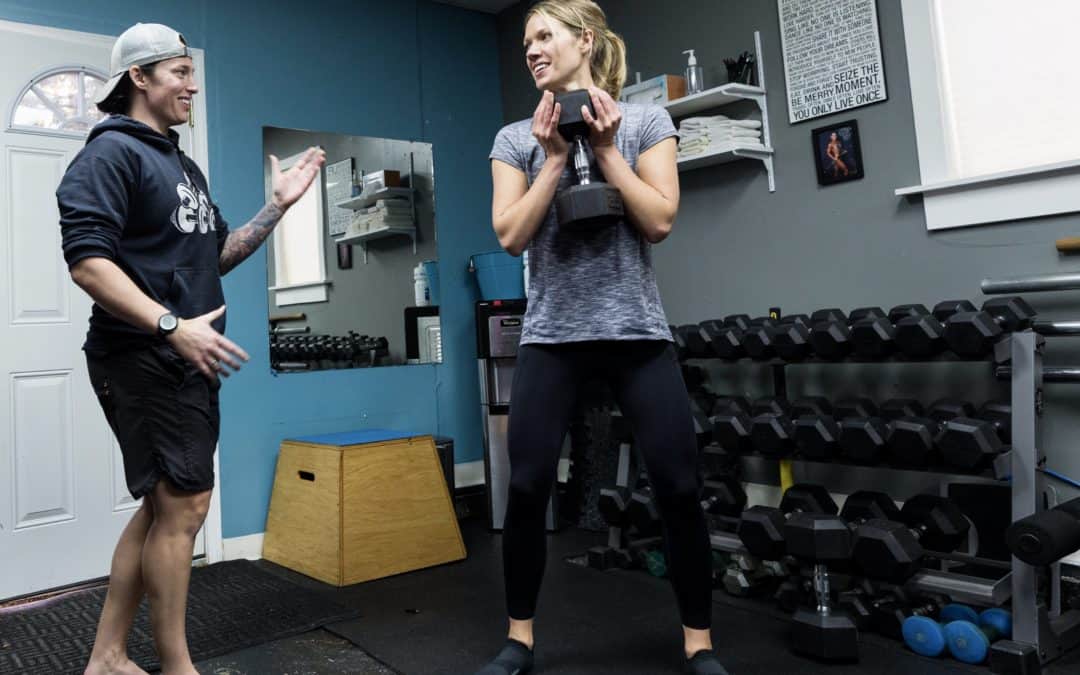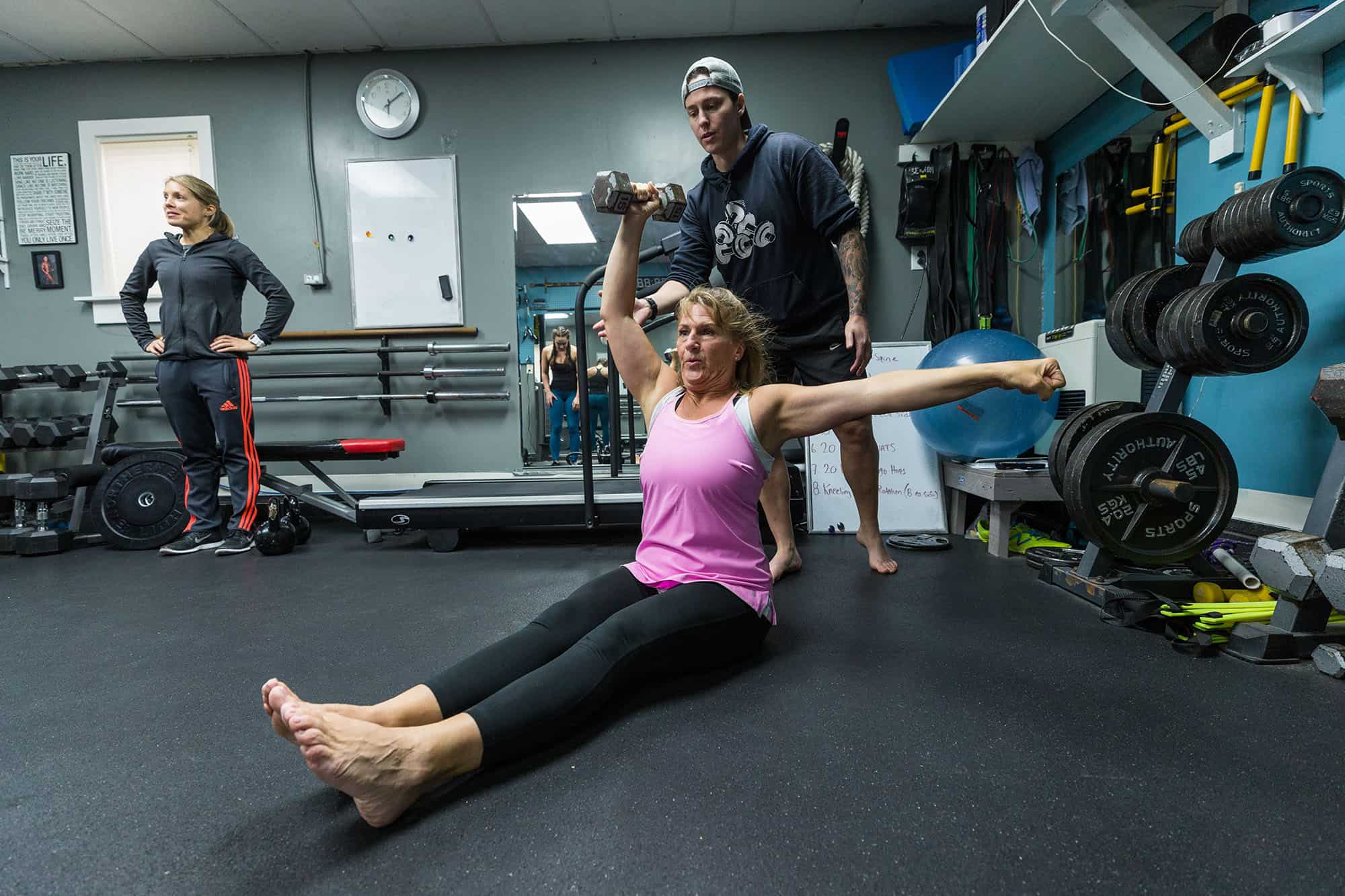5 questions to ask before hiring a Personal Trainer
by Steph | Sep 21, 2017 | What's new

With the new year right around the corner, millions of people will begin setting new fitness goals. If one of your aspirations for 2020 is to get fit, I recommend working with a professional who can help you get there as fast and as safely as possible.
Before hiring a personal trainer, it’s important to understand ahead of time what you’re ultimately going to get out of the experience. Take the time to think about what is most important to you.
Do you prefer a male or female trainer? Do you want to workout in a group, or one on one?
Do you need help with fat loss, building muscle or improving mobility? Is form correction, and feedback important to you?
Here are 5 questions to ask before hiring a Personal Trainer:
1. What certifications do you have?
If you’re someone who cares about the education of the trainer you’re trusting to help you get fit (and you should be), make sure you choose someone who holds at least one personal training certification from an accredited agency. These certifications are the gold standard in the industry; NASM, NSCA, ACSM, and ACE.
Equally Awesome Bonus certifications: Precision Nutrition level 1 & 2, Certified Functional Strength Coach (CFSC), Pain-Free Performance Specialist (PPSC), Training for Warriors level 1 & 2, and FMS certifications.
These certs make for a well-rounded coach who you can trust is up on everything from nutrition, to corrective exercise to effective programming that will keep you safe from injury.
2. What was the last seminar or certification course you attended?
When hiring a trainer, it’s important to ask how often they attend fitness seminars and what kind of courses they take on a regular basis.
Organizations like NASM require a personal trainer to re-certify every two years. They need to accrue a certain amount of CEU’s, and stay up to date with their CPR/AED and First-Aid training.
Trends in the fitness industry change every few months, so staying up on the latest research is important. A credible personal trainer should attend at least two hands-on seminars per year, otherwise they risk falling way behind on what’s relevant.
As a trainer who values continuing education, I follow the advice of the one of the most respected basketball coaches in sports history:
“If you’re a lazy leader, if you are not willing to pay the price to go to clinics, conferences, and seminars, if you don’t read all that you can, if you don’t seek information from all sources, if you don’t analyze those under your supervision as well as yourself (and then let yourself be governed by that analysis), if you are not willing to do all these things- then you are cheating somebody. You are not doing what you are being paid to do.” -Coach John Wooden
Bonus questions: ASK: What’s the next seminar you’re going to attend, and what book(s) are you currently reading?

Keep in mind that a personal trainer can only take you as far as they have gone themselves. If they don’t regularly read books, and industry magazines, listen to podcasts and attend seminars, they’re likely way behind on everything.
Their coaching skills are only as good as the quality of information they consume and apply, as well as who they learn from.
3. What kind of results can you get me?
Have them share testimonials with you, and ask to interview other clients who have achieved similar goals to yours. Have them share the system they use and the philosophy behind how they help their clients get results.
Do they promote supplements?
What kind of equipment do they use?
Do they assist with goal setting?
How will they hold you accountable?
Can they show you ‘before and after’ photos of other clients?
Not everyone is interested in a body transformation goal, but if you are, ask to see proof that a coach can help you. Ask as many questions as you can to get a better understanding of how they will support your needs. This is your health, after all.
Check out their social media pages to learn more about them before committing. You can often gather all the information you need there before even picking up the phone to schedule a consultation.
Inactivity on social media is a red flag for me, and I wouldn’t hire anyone who didn’t post weekly on at least one platform. Consistent sharing of valuable information tells the consumer the trainer is confident in their abilities, they are eager to educate, and they are willing to be transparent.
There are probably plenty of incredible trainers who don’t post much on social media, but this is a missed opportunity to showcase results, and gain trust. It’s almost 2020, and there are over 500 million daily active users of Instagram alone. Why would anyone sleep on this free marketing tool? It makes no sense to me.
4. How will we communicate?
Ask the trainer their preferred way of staying in touch.
Can you call, text or email them anytime?
Can the trainer make themselves available to you before and after workouts to go over form, and to offer advice on your aching knee?
Communication is key to a solid relationship and everyone’s style is different. Make sure you feel comfortable asking the trainer for anything you may need.
All of our clients have the option of sending us weekly email check-ins to ask questions, and everyone has our cell phone numbers.
5. How will my progress be measured?
Progress makes us happy. Most people will agree that seeing improvements in their performance, and in their body composition is important to them. Without progress, it’s tough to stay committed to a program.
Can the trainer take your body composition measurements with calipers, or do they prefer you take photos to track your progress?
Will they have you check your bodyweight on the scale?
Does the coach do any kind of physical assessments like the Functional Movement Screen (FMS) to asses your current abilities?
Ask how frequent your progress will be tracked and measured.
Much like anything in life, it takes time to experiment with different things to find what fits best. Your health should be your number one priority in life because without it, nothing else matters. Invest in your health, it’s always worth it.
Who you choose to help you get and stay fit has a big responsibility to ensure you receive the best possible experience and actually get results. It’s important for you to ask the right questions ahead of time to ensure the trainer can deliver exactly what you need.
What are some questions YOU would ask before deciding to hire a personal trainer?


